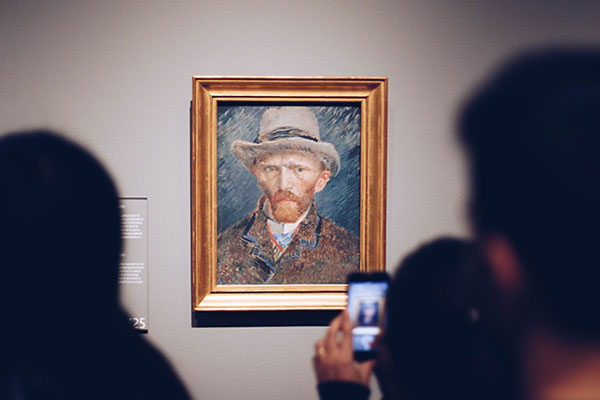Decolonisation: The End of Empires & Birth of New Nations
🌍 Introduction
Decolonisation refers to the process by which colonies gained independence from colonial powers. It was one of the most significant political transformations of the 20th century, leading to the creation of new nations and reshaping global politics.
Key Years: 1945–1990
Major Colonial Powers: Britain, France, Belgium, Portugal, Netherlands, Spain
Regions Affected: Asia, Africa, the Caribbean, the Pacific
🔑 Why Did Decolonisation Happen?
Several factors played a role in ending centuries of colonial rule:
1️⃣ The Impact of World War II (1939–1945)
- Colonial powers like Britain & France were weakened economically and militarily.
- The war exposed the hypocrisy of European rule – fighting for “freedom” while controlling colonies.
- Japan’s success in driving out European powers from Asia inspired local movements.
2️⃣ Rise of Nationalism 🌟
- Anti-colonial movements gained strength.
- Leaders like Mahatma Gandhi (India), Ho Chi Minh (Vietnam), Jomo Kenyatta (Kenya), and Kwame Nkrumah (Ghana) demanded self-rule.
3️⃣ Role of the United Nations (UN) 🕊️
- Founded in 1945, the UN promoted self-determination (right to govern themselves).
- The UN General Assembly passed resolutions supporting decolonisation.
4️⃣ The Cold War (1947–1991) ❄️🔥
- USA & USSR opposed colonialism (for different reasons).
- US: Wanted new allies & markets in decolonised countries.
- USSR: Supported revolutions to spread communism.
5️⃣ Economic Burden on Colonial Powers 💰
- Maintaining colonies was too expensive after World War II.
- Countries like Britain and France faced financial crises and couldn’t afford to rule overseas territories.
📜 Decolonisation in Different Regions
🇮🇳 Asia: The First Wave (1945–1955)
- India & Pakistan (1947) 🇮🇳🇵🇰
- Mahatma Gandhi & Jawaharlal Nehru led India’s struggle against the British.
- After years of protests, Britain granted independence on 15th August 1947.
- Partition of India & Pakistan led to massive violence and migration.
- Indonesia (1949) 🇮🇩
- The Dutch tried to reclaim Indonesia after WWII.
- Sukarno led resistance, and after years of struggle, Indonesia became independent.
- Vietnam (1954) 🇻🇳
- Ho Chi Minh led the Viet Minh against French rule.
- After defeating the French at Dien Bien Phu, Vietnam gained independence.
- Vietnam was divided into North & South, leading to the Vietnam War later.
- Malaya (Malaysia) – 1957 🇲🇾
- The British gave independence after local resistance and communist uprisings.
🌍 Africa: The Largest Movement (1950s–1970s)
- Ghana (1957) 🇬🇭
- Kwame Nkrumah led the struggle for freedom.
- First sub-Saharan African country to gain independence.
- Inspired other African movements.
- Algeria (1962) 🇩🇿
- One of the bloodiest struggles.
- The Algerian War (1954–1962) was fought against French rule.
- Over 1 million deaths before France finally left.
- Kenya (1963) 🇰🇪
- Mau Mau Rebellion against British rule.
- Led by Jomo Kenyatta, Kenya became independent.
- Congo (1960) 🇨🇩
- Belgium rushed decolonisation, leading to political chaos & civil war.
- Patrice Lumumba became the first Prime Minister.
- South Africa (1994) 🇿🇦
- British rule ended in 1961, but white minority rule (Apartheid) continued.
- Nelson Mandela led the fight for equality.
- Apartheid ended in 1994, making South Africa fully independent.
🇦🇺 The Caribbean & The Pacific (1960s–1980s)
- Jamaica (1962) 🇯🇲
- Gained independence from Britain.
- Fiji (1970) 🇫🇯
- Became independent from British rule.
- Papua New Guinea (1975) 🇵🇬
- Freed from Australian control.
🇲🇽 Latin America: A Different Story (1800s–1900s)
Latin America had already gained independence in the 19th century from Spain and Portugal.
- However, economic and political control by the US & European countries continued (neo-colonialism).
- Cuba (1959): Fidel Castro overthrew US-backed government in a socialist revolution.
🚨 Challenges After Decolonisation
1️⃣ Political Instability & Civil Wars ⚠️
- Many African & Asian countries struggled with democracy.
- Ethnic conflicts & coups were common.
2️⃣ Economic Dependence 💰
- Former colonies still relied on their old masters for trade.
- Western companies controlled natural resources.
3️⃣ Cold War Interventions ❄️🔥
- USA & USSR influenced newly independent nations.
- Many countries got involved in proxy wars (like Vietnam & Angola).
4️⃣ Borders Drawn by Colonisers = Chaos!
- Artificial borders created ethnic conflicts (e.g., India-Pakistan, Nigeria, Rwanda).
🏆 Success Stories of Decolonisation
Despite struggles, many countries thrived after independence:
✅ India – Became the world’s largest democracy.
✅ Singapore – Transformed from a poor colony to a global business hub.
✅ South Korea – Overcame colonial rule and became an economic powerhouse.
🌎 Legacy of Decolonisation
🌟 United Nations became stronger.
🌟 New nations shaped global politics.
🌟 Colonial-era injustices still impact societies today.
💡 Quick Recap!
🚀 Decolonisation was driven by WWII, nationalism, & economic collapse.
⚔️ Asia & Africa led the way, with brutal struggles in some places.
💰 Economic & political challenges followed independence.
🌍 The world map changed forever!


